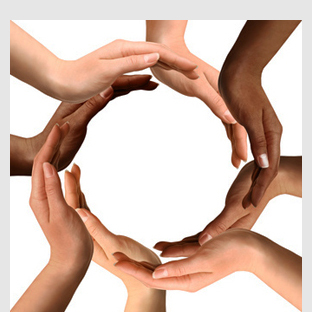

Group is a natural human environment for us. If you think about it, we belong to a group (i.e., family) from the moment we are born. Throughout our lives we belong to multiple groups - school, clubs, organized activities, and work teams. Therefore, group is a natural setting to work through personal questions and issues with which we may struggle.
Group therapy is a special form of therapy in which a small number of people (typically 5-8) meet under the guidance of a professionally trained therapist. The purpose of group therapy is to assist each individual in emotional growth and personal problem solving by way of reflecting on the way one interacts with other group members. Through self-reflection and feedback from other group members, as well as observation of how group members react to one another, members learn to understand their own patterns of thoughts and behaviors and those of others.

A typical group meeting lasts between 75-90 minutes.
Each group has maximum 8 members.
Participation in a group requires an individual consultation session to assess readiness for group therapy in general, and compatibility with an existing group in particular.
You should expect some wait period between the time you express your interest in a group and the time you actually join a
group. Ongoing groups may not have an immediate opening and new groups may require a period of time for recruitment of new members.
Frequently asked questions:
Q: What kinds of problems are discussed in a group?
A: Some concerns typically addressed in group are:
Interpersonal relationships, Impact of childhood on current life, Depression, Anxiety, Loss, Trauma, Lifestyle issues, Body image or eating concerns
Q: Are all groups alike?
A: Not every group is alike. There is a variety of styles of groups. Some groups focus more on interpersonal development, where much of the learning
comes from interactions between members. These groups are usually called “process groups.” Other groups are more “structured” and concentrate on
specific themes such as: control of negative thoughts, eating and body image concerns, study skills, etc. These groups are usually called “support
groups” or “self-help groups.”
Q: Can I be in group therapy if I am already in individual therapy?
A: Some people use group therapy as the main or only treatment approach, and others use it in conjunction with other types of therapy. The
combination of individual and group therapy is usually very effective and each modality can facilitate your gain from the other. If you are already in
individual therapy and are considering adding group therapy to your treatmen, you should discuss it with your therapist.
Q: I have lots of friends and I do not have problems socializing. Can I benefit from group therapy?
A: Group therapy is designed to meet the needs of both the interpersonally “savvy,” the interpersonally isolated individual, or the individual who finds
interpersonal relationships more challenging.
Q: What if I don’t like to talk in front of others?
A: Although group members are encouraged to talk with each other in a spontaneous and honest fashion, no one is forced to talk. Members can listen
to others until they are ready to share.
Q: I am always talking to my friends about my problems. How is group therapy different?
A: Although we naturally live in groups, the presence and participation of a trained therapist provides group members with the opportunity to reflect
and understand their patterns of interactions with others. Group members come to understand how and why they react to others and others react to
them.
Q: What if I don’t feel comfortable sharing my problems with a bunch of people?
A: You may feel uneasy, self-conscious or shy when you first join the group. However, especially if you are shy, a group can be perfect for you. Since
functioning in a group is unavoidable in life, group counseling can help you develop better skills in a supportive environment. You will discover that,
over time, you may develop trust in others and become more confident functioning in a group. This will enhance your ability to function in "real life”
groups.
Q: What if others find out about my problems?
A: Group members contract to keep information within the group.
Q: What if no one else understands me?
A: You will be surprised to learn how many people share similar experiences or thoughts. Most people find it comforting to know that they are
not alone.
Copyright 2011-2014 © Amira Simha-Alpern, All rights reserved